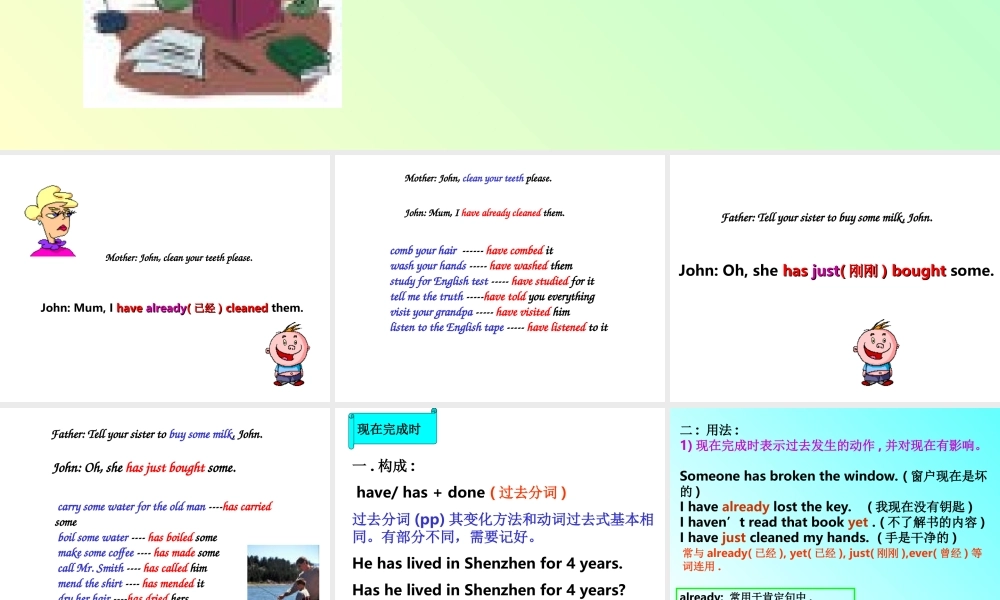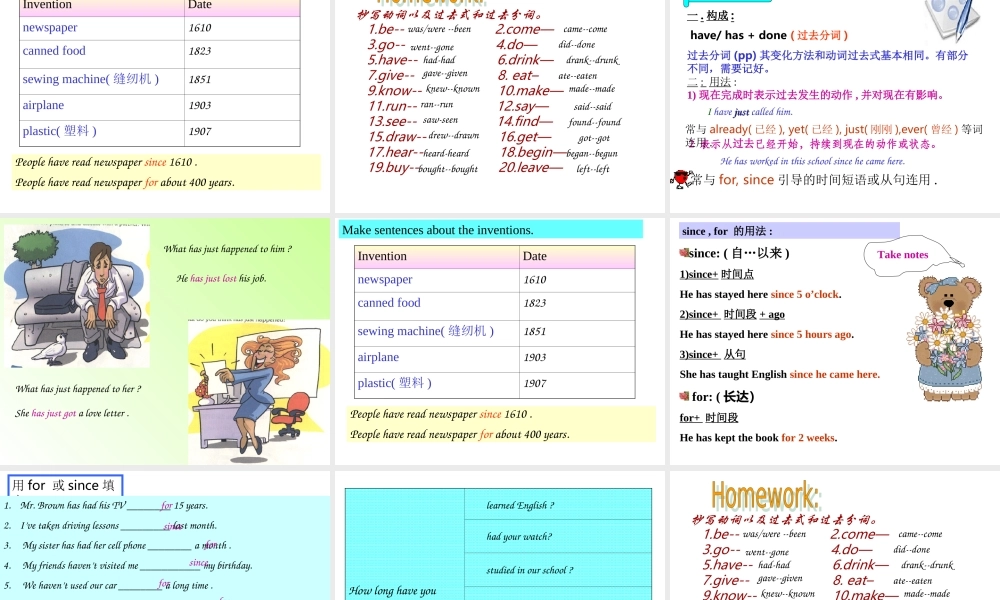present(now)futurepast 现在完成时( present perfect tense)do my homework Mother: John, clean your teeth please.John: Mum, I have have alreadyalready(( 已经已经 ) cleaned) cleaned them. comb your hair ------ have combed it wash your hands ----- have washed them study for English test ----- have studied for it tell me the truth -----have told you everything visit your grandpa ----- have visited him listen to the English tape ----- have listened to itMother: John, clean your teeth please.John: Mum, I have already cleaned them. Father: Tell your sister to buy some milk, John.John: Oh, she has has justjust(( 刚刚刚刚 ) bought) bought some. Father: Tell your sister to buy some milk, John.John: Oh, she has just bought some. carry some water for the old man ----has carried some boil some water ---- has boiled some make some coffee ---- has made some call Mr. Smith ---- has called him mend the shirt ---- has mended it dry her hair ----has dried hers 现在完成时一 . 构成 : have/ has + done ( 过去分词 )过去分词 (pp) 其变化方法和动词过去式基本相同。有部分不同,需要记好。He has lived in Shenzhen for 4 years. Has he lived in Shenzhen for 4 years? Yes,he has. / No, he hasn’t . 二 : 用法 : 1) 现在完成时表示过去发生的动作 , 并对现在有影响。Someone has broken the window. ( 窗户现在是坏的 )I have already lost the key. ( 我现在没有钥匙 )I haven’t read that book yet . ( 不了解书的内容 )I have just cleaned my hands. ( 手是干净的 )常与 already( 已经 ), yet( 已经 ), just( 刚刚 ),ever( 曾经 ) 等词连用 . already: 常用于肯定句中 . yet: 常用于否定句 , 疑问句尾 . Translate the following sentences. 1. 你已经找到你的书了吗 ? (find-found)2. 他们在这个城市建了许多房子 . (build-built)3 . Judy 还没到达 . (arrive-arrived)4. 你吃过...




